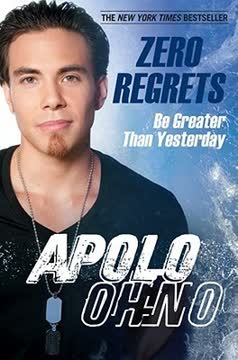Key Takeaways
1. Embrace the journey: Passion and purpose drive success
"I loved the sport when I was a teenager and I'd had to decide on the rocky shoreline of western Washington whether I was going to be all in, and I loved it still."
Find your passion. Apolo Ohno's journey from a rebellious teenager to an Olympic champion was driven by his deep love for short-track speed skating. This passion helped him overcome numerous obstacles and setbacks throughout his career.
Commit fully to your craft. Ohno's father taught him that dedicating yourself 100% to your chosen path is crucial for success. This meant sacrificing other aspects of life and focusing intensely on training and improvement.
Enjoy the process. Ohno learned to appreciate not just the victories, but also the daily grind of training, the challenges, and the personal growth that came with his pursuit of excellence. This mindset allowed him to persevere through difficult times and find fulfillment in his journey.
2. Confront fear and doubt to unlock your potential
"Fear kills your potential to be who you are and who you can become."
Acknowledge your fears. Ohno learned to recognize and face his fears head-on, whether it was the fear of failure, injury, or not living up to expectations. By confronting these fears, he was able to move past them and perform at his best.
Use fear as motivation. Instead of letting fear paralyze him, Ohno used it as fuel to push himself harder in training and competition. He reframed fear as a challenge to overcome rather than a barrier to success.
Develop mental toughness. Through visualization techniques, meditation, and working with sports psychologists, Ohno built the mental resilience necessary to perform under pressure and overcome self-doubt.
3. Mental strength is the key differentiator in elite performance
"If more athletes were to give training the mind even a quarter of 1 percent as much focus as they do the physical aspects of gearing up, records would fall by the bushel."
Train your mind. Ohno dedicated significant time to mental preparation, including visualization, meditation, and positive self-talk. These techniques helped him stay focused and perform at his peak during competitions.
Develop a champion's mindset. Ohno cultivated an unshakeable belief in his abilities and a fierce determination to succeed. This mindset allowed him to push through pain, fatigue, and setbacks that might have derailed others.
Control your emotions. Learning to manage stress, anxiety, and other emotions was crucial for Ohno's success. He developed techniques to stay calm and focused in high-pressure situations, giving him an edge over his competitors.
4. Adapt and evolve to stay ahead in your field
"Change, for many, can be paralyzing. I embrace it. Change can be empowering. Change can put you ahead of the curve."
Embrace change. Ohno consistently adapted his training methods, diet, and racing strategies to stay competitive in a rapidly evolving sport. This willingness to change kept him at the top of his game for over a decade.
Analyze trends. By studying patterns in his sport and anticipating future developments, Ohno was able to stay ahead of his competitors. He adjusted his body composition, training regimen, and tactics to match the changing demands of short-track speed skating.
Innovate constantly. Ohno worked with coaches, trainers, and other experts to develop new training techniques and strategies. This innovative approach allowed him to continue improving even as he got older and faced younger competitors.
5. Build a support system of mentors, coaches, and family
"Dad and I were teammates, and we might be good friends, but this was no time to be friends. This was business."
Cultivate key relationships. Ohno's success was built on a foundation of strong relationships with his father, coaches, trainers, and teammates. These relationships provided support, guidance, and motivation throughout his career.
Seek out expertise. Ohno worked with specialists in various fields, including nutrition, sports psychology, and strength training. By leveraging their knowledge, he was able to optimize every aspect of his performance.
Balance support and independence. While relying on his support system, Ohno also learned to make crucial decisions for himself. This balance allowed him to take ownership of his career while benefiting from the wisdom and experience of others.
6. Push beyond perceived limits through disciplined training
"To accomplish your goal, you have to be willing to sacrifice beyond what others are willing to sacrifice; you have to be willing to train at levels others are not willing to train at; you have to be willing to accept accomplishing goals that others never reach."
Set ambitious goals. Ohno consistently pushed himself to achieve what others thought impossible, whether it was winning multiple Olympic medals or transforming his body composition.
Embrace discomfort. Through grueling training sessions and strict dietary regimens, Ohno learned to push past physical and mental barriers. He found that growth and improvement often lie just beyond the point of comfort.
Maintain consistency. Ohno's success was built on years of disciplined training and preparation. He understood that achieving greatness requires sustained effort and commitment, not just occasional bursts of intensity.
7. Maintain integrity and sportsmanship in the face of adversity
"It is more important to be a champion off the field than on; that's what resonates with me."
Lead by example. Ohno demonstrated sportsmanship and grace even in the face of controversy and disappointment. His behavior after the controversial 2002 Olympic 1500m final showed maturity and integrity beyond his years.
Rise above negativity. Despite facing criticism and even threats, Ohno remained focused on his goals and refused to engage in negative behavior. This approach earned him respect from competitors and fans alike.
Embrace the Olympic spirit. Ohno understood that the Olympics represent more than just winning medals. He strived to embody the values of fair play, mutual respect, and international goodwill throughout his career.
8. Use setbacks as fuel for future success
"Sometimes you've got to get knocked down to come back even stronger."
Learn from failures. Ohno used disappointing performances and setbacks as opportunities for growth and improvement. He analyzed his mistakes and worked to address weaknesses in his training and racing strategies.
Maintain perspective. By viewing setbacks as temporary obstacles rather than permanent defeats, Ohno was able to bounce back quickly from disappointments and refocus on his long-term goals.
Cultivate resilience. Through repeated challenges and comebacks, Ohno developed a deep well of resilience that allowed him to persevere through injuries, controversies, and tough losses.
9. Balance intense focus with moments of relaxation and reflection
"You also need to rest."
Prioritize recovery. Ohno learned the importance of proper rest and recovery in maximizing his performance. This included adequate sleep, nutrition, and periods of lower-intensity training.
Find balance. While maintaining an intense focus on his sport, Ohno also recognized the need for activities outside of skating to maintain mental and emotional well-being.
Reflect and adjust. Regular periods of reflection allowed Ohno to assess his progress, identify areas for improvement, and make necessary adjustments to his training and racing strategies.
10. Leave a lasting legacy through your actions and attitude
"I wanted to embody that spirit—what that means, the constant struggle. The philosophy of winning is not determined by getting on the podium. It's much, much bigger than that."
Inspire others. Ohno used his platform as an Olympic champion to inspire and motivate others, particularly young people. He shared his experiences and lessons learned to help others pursue their dreams.
Promote your sport. Through his success and charismatic personality, Ohno helped raise the profile of short-track speed skating in the United States and globally.
Embrace your role model status. Ohno recognized the responsibility that came with his success and strived to be a positive influence both on and off the ice. He understood that his legacy would be defined not just by his medals, but by the impact he had on others.
Last updated:
FAQ
What is "Zero Regrets: Be Greater Than Yesterday" by Apolo Anton Ohno about?
- Personal and Olympic journey: The book follows Apolo Anton Ohno’s transformation from a troubled youth to the most decorated American Winter Olympian, detailing his struggles, training, and triumphs.
- Philosophy of "Zero Regrets": Ohno’s core message is about living life with full commitment, so you never look back wishing you had done more.
- Beyond sports: The narrative extends to life lessons, mental and physical preparation, and Ohno’s experiences with fame, media, and life after skating.
Why should I read "Zero Regrets: Be Greater Than Yesterday" by Apolo Anton Ohno?
- Inspiration from adversity: Ohno’s story of overcoming personal and professional obstacles offers motivation for anyone facing challenges.
- Insight into elite mindset: Readers gain a rare look at the mental toughness, discipline, and strategic thinking required for Olympic-level success.
- Universal life lessons: The book’s wisdom on fear, failure, perseverance, and self-belief applies to all areas of life, not just sports.
What are the key takeaways from "Zero Regrets: Be Greater Than Yesterday" by Apolo Anton Ohno?
- Mind over matter: Mental strength, visualization, and willpower are as important as physical training in overcoming obstacles.
- Embrace change and uniqueness: Ohno encourages readers to accept being different and to pursue their true passions, even if unconventional.
- Discipline and sacrifice: Achieving excellence requires relentless training, strict nutrition, and making tough choices.
- No regrets philosophy: Giving your all in pursuit of your goals leads to a life without regrets, regardless of the outcome.
What does the "Zero Regrets" philosophy mean in Apolo Anton Ohno’s book?
- 100% commitment: "Zero regrets" means giving your absolute best effort in everything you do, so you never have remorse about missed opportunities.
- Mental clarity and focus: Ohno used this philosophy to push through pain and fear, focusing on the present moment as if it were his last chance.
- Life application: The mindset extends beyond sports to school, business, and relationships, encouraging clear vision and relentless pursuit.
How did Apolo Anton Ohno’s upbringing influence his Olympic career, according to "Zero Regrets"?
- Single father’s dedication: Raised by his father Yuki, Ohno’s childhood was marked by discipline, sacrifice, and unwavering support.
- Early exposure to activities: His father kept him engaged in various sports and activities, laying the foundation for his athletic development.
- Overcoming challenges: Growing up without a mother and facing temptations, Ohno’s resilience was shaped by his father’s tough love and belief in him.
How did Apolo Anton Ohno handle injuries and setbacks in his Olympic career as described in "Zero Regrets"?
- Physical challenges: Ohno faced serious injuries, including torn ligaments and a severe leg gash, yet persisted with determination and medical support.
- Mental resilience: He used mental techniques to manage pain and fear, maintaining focus even when doubting his abilities.
- Learning from setbacks: Mistakes and failures were reframed as opportunities for growth, fueling his drive to improve and succeed.
What role did mental training and sports psychology play in Apolo Anton Ohno’s preparation, according to "Zero Regrets"?
- Mental edge as a differentiator: Ohno credits mental strength as the key factor at the Olympic level, using techniques like meditation, visualization, and positive self-talk.
- Working with experts: He collaborated with sports psychologists who introduced him to meditation, neurofeedback, and mental routines for managing pressure.
- Daily mental discipline: Consistent mental training, including journaling and goal setting, was as important as physical workouts in his preparation.
How did nutrition and recovery factor into Apolo Anton Ohno’s training in "Zero Regrets"?
- Nutrition as discipline: Ohno transitioned from a carefree diet to a highly regimented plan, focusing on balance, timing, and supplements to fuel performance.
- Nutrient timing and recovery: He paid close attention to pre- and post-activity nutrition, sauna sessions, and massage therapy to optimize recovery.
- Avoiding doping: Ohno firmly rejected performance-enhancing drugs, attributing his success to natural talent, hard work, and mental strength.
How did Apolo Anton Ohno’s training methods evolve throughout his career, as described in "Zero Regrets"?
- Early focus on power: Initial training emphasized brute strength and speed, with traditional methods and a higher body weight.
- Shift to efficiency and endurance: Over time, Ohno incorporated interval training, longer sprints, and strategic pacing to meet the sport’s evolving demands.
- Fight camp approach: For the 2010 Vancouver Olympics, he adopted a “fight camp” style with intense, high-volume workouts, strict nutrition, and advanced recovery protocols.
What challenges and controversies did Apolo Anton Ohno face with South Korea, and how did he address them in "Zero Regrets"?
- 2002 Olympic controversy: Ohno’s involvement in a disputed disqualification led to intense backlash and anti-American sentiment in South Korea.
- Security concerns: He withdrew from a World Cup event in South Korea due to death threats and cyber-attacks, highlighting the intersection of sports and geopolitics.
- Bridging gaps: Later, Ohno trained with the Korean national team, gaining mutual respect and insight into their culture and techniques.
How did Apolo Anton Ohno’s experience on "Dancing with the Stars" influence his life and mindset, according to "Zero Regrets"?
- Stepping out of comfort zone: Initially skeptical, Ohno embraced the challenge, committing fully to win despite fears about his dancing skills.
- Personal growth: The show demanded emotional openness and vulnerability, helping him build confidence and adaptability.
- Broader impact: The experience expanded his public image, reinforced his belief in dedication, and contributed to his “zero regrets” mindset.
What are the most memorable quotes from "Zero Regrets: Be Greater Than Yesterday" by Apolo Anton Ohno and what do they mean?
- “Zero regrets”: A mantra for living fully and pushing yourself to the limit so you never look back wishing you had done more.
- “It’s not where you start, it’s where you finish.” This quote reflects Ohno’s belief that perseverance and dedication, not beginnings, determine success.
- John Wooden on success: “Success is peace of mind which is a direct result of self-satisfaction in knowing you did your best to become the best you are capable of.” This defines true victory as effort and self-fulfillment, not just winning medals.
Review Summary
Readers praise Zero Regrets as an inspiring and motivational memoir, highlighting Ohno's dedication, mental strength, and unique training methods. Many appreciate his positive outlook and "zero regrets" philosophy. The book offers insights into Ohno's childhood, relationship with his father, and journey to becoming an Olympic champion. While some find the writing style simple or occasionally boastful, most reviewers recommend it for its inspirational message and behind-the-scenes look at competitive speed skating. Criticisms include excessive detail and limited applicability to everyday life.
Similar Books


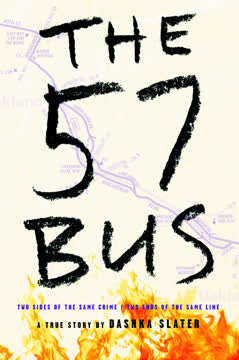
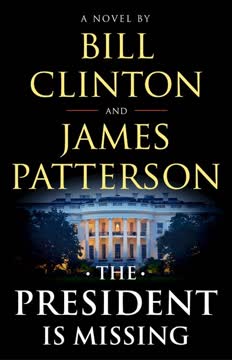
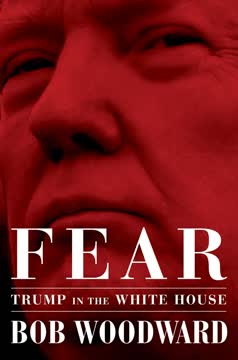


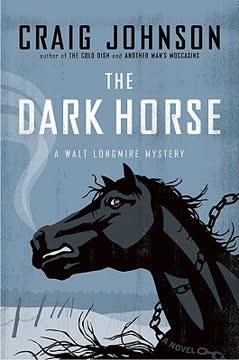
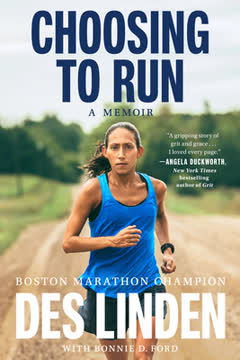

Download PDF
Download EPUB
.epub digital book format is ideal for reading ebooks on phones, tablets, and e-readers.
